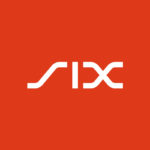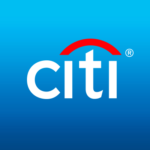In other news, BlackRock joins Veris, FICC launches a collateral service, and Citi supports the new Food Securities Fund.
But Firms Want Real-Time Corporate Actions Data
 A new report based on survey results reveals that slightly more than “three-quarters of respondents (78 percent) still process part of their corporate actions manually, with 40 percent processing more than half of their corporate actions in this way,” according to research sponsored by data and infrastructure services provider SIX.
A new report based on survey results reveals that slightly more than “three-quarters of respondents (78 percent) still process part of their corporate actions manually, with 40 percent processing more than half of their corporate actions in this way,” according to research sponsored by data and infrastructure services provider SIX.
Oddly enough, firms that are grappling with the shortcomings of manual systems are looking forward to real-time delivery of high-quality data to their corporate actions operations, according to the SIX report.
“Just under half of all respondents (49.1 percent ) cited legacy technology as their greatest challenge standing in the way of them automating their corporate actions processing,” notes the report. SIX reached out to global asset managers, wealth managers, custodians, clearinghouses, and investment banks for the survey, which was conducted from March until May 2021. The respondents are from Europe, North America, and Asia-Pacific.
“Despite the current lack of automation, nearly half of the respondents (47 percent) said they were looking for the near real-time delivery of corporate actions,” according to the survey.
The survey, which was also conducted last year, shows a jump in the number of respondents “looking for intraday delivery of corporate actions ― 30.9 percent in 2021, up from 12.9 percent in 2020. … There is apparently new demand for corporate actions data delivered at various intervals during the day,” according to the report.
The respondents also cited as business drivers for the move to automation the need for reduced operating costs and regulatory compliance —the “two most important factors. In terms of asset class focus, market participants are looking for additional detail around their corporate actions, specifically when it comes to equities and fixed income,” according to the report.
BlackRock Joins DLT-Based Network for Equity Swaps
 Asset management giant BlackRock is now part of a distributed ledger network for equity swaps, dubbed Veris, developed by Axoni.
Asset management giant BlackRock is now part of a distributed ledger network for equity swaps, dubbed Veris, developed by Axoni.
BlackRock, whose membership follows that of Citi and Goldman Sachs, has integrated Axoni’s software with the firm’s Aladdin operating system, officials say.
“BlackRock Investment Operations will use Axoni’s software internally, with the goal of making the capabilities available to Aladdin clients following further integration and development,” officials add.
The Axoni platform helps “all parties on a trade to match and confirm all trade terms upfront and remain synchronized on post-trade events such as amendments, positions, and cash flows through the lifecycle of the swap,” officials say.
BlackRock’s participation follows years of evaluation by BlackRock, Axoni, and “other large financial institutions” hoping to use a distributed ledger network “for the post-trade management of derivatives, beginning with equity swaps,” officials say. The Veris network was created to manage the lifecycle of equity swaps.
“BlackRock will bring significant efficiencies to the network by driving adoption of standardized post-trade swap data models and workflows,” says Carl Forsberg, head of OTC markets at Axoni, in a prepared statement.
“The Axoni platform will help us build scalability while mitigating risks in the investment life cycle beginning with equity swaps. We see great potential in a distributed ledger network for uncleared derivatives as we continue to prove out this new area of innovation,” says Mark Cox, chief operating officer (COO) of global investment operations at BlackRock, in a statement.
The Veris system uses the ISDA Common Domain Model (CDM), an open-source, standardized model for derivative trade processing, officials say.
FICC Launches Sponsored General Collateral Service
 The Fixed Income Clearing Corp (FICC) subsidiary of the DTCC has launched its Sponsored General Collateral (GC) Service in collaboration with BNY Mellon and with the support of Broadridge, officials say.
The Fixed Income Clearing Corp (FICC) subsidiary of the DTCC has launched its Sponsored General Collateral (GC) Service in collaboration with BNY Mellon and with the support of Broadridge, officials say.
The new service has facilitated the first trades executed by BNY Mellon, Federated Hermes, and JPMorgan Securities.
The Sponsored GC Service “allows sponsoring members and their sponsored member clients to submit triparty repo transactions executed on a general collateral basis across U.S. Treasury securities, agency debentures and agency mortgage-backed securities collateral to central clearing,” officials say.
The service is intended to reduce operational and counterparty risk, and provide balance sheet and capital relief, and more market liquidity, officials say.
“As part of this offering, cleared repo transactions will settle on the triparty platform of BNY Mellon, similar to how triparty repo transactions are handled outside of central clearing today,” officials say.
“By enabling access to FICC via BNY Mellon’s triparty repo platform, users benefit from an operationally efficient way to clear their repo transactions – including overnight and term repo transactions. BNY Mellon will also act as a Sponsoring Member for Sponsored Member Clients seeking to participate in cleared repo via the new Sponsored GC Service,” officials say.
Citi & Vistra Endorse Food Securities Fund
 Citi and fund administrator Vistra have announced their support of the Food Securities Fund, which helps “institutional investors to achieve environmental and social impact at attractive risk-adjusted returns,” officials say.
Citi and fund administrator Vistra have announced their support of the Food Securities Fund, which helps “institutional investors to achieve environmental and social impact at attractive risk-adjusted returns,” officials say.
The Food Securities Fund offers working capital loans to sustainable agriculture companies in emerging and developing markets, with an initial focus on Sub Saharan Africa, officials explain.
The Food Securities Fund was developed by advisory firm Clarmondial with input from institutional investors, agribusinesses, and conservation organizations, officials say. The fund combines a private debt investment strategy with a regulated fund structure in Luxembourg, which allows for “quarterly liquidity and aims to deliver change at scale,” officials say. “The Fund is classified under article 9 of the Sustainable Finance Disclosure Rule (SFDR). The Fund started operations and concluded its first investment in March 2021.”
Citi will act as the fund’s central administration agent and depository, officials say. “The Fund addresses the gap in season-long loans for agriculture production in emerging markets, contributing to the UN Sustainable Development Goals (SDGs) by promoting climate smart agriculture and responsible, deforestation-free supply chains.”
Vistra Fund Management’s AIFM ManCo services helped with the regulated fund structure setup in Luxembourg, officials say. Vistra Group offered advisory and specialized fund administration services for alternative funds, corporate, capital markets and private wealth clients.
Need a Reprint?